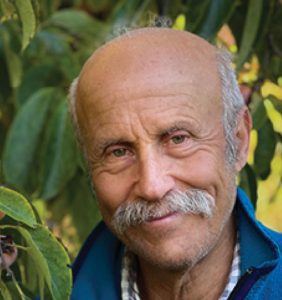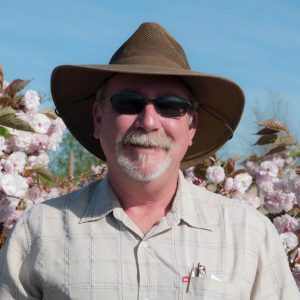
804: Journaling a New Habit with Janis and Ray
A Rosie on the House Radio Show Replay.Janis Norton and Ray Jess join us for our monthly Rosie on the House Radio hour talking about journaling for gardens and orchards.
We’ve started our Urban Farm Fruit Tree Education Program for 2023. The way our program works is that we offer fruit tree education throughout the year with monthly fruit tree chats online and then in the fall we schedule our core fruit tree classes.
You can pre-order your fruit trees and keep offering information to help you get prepared. Then, just like with a pumpkin lot at Halloween, we open at the perfect time to plant.
Generally the nursery is only open for about 20 days per year in two “seasons” for you to pick up your pre-ordered fruit trees. However, we do have small item pickup the rest of the year, and we are here for you at fruittrees@urbanfarm.org Download our 2023 catalogs for details!

A Rosie on the House Radio Show Replay.Janis Norton and Ray Jess join us for our monthly Rosie on the House Radio hour talking about journaling for gardens and orchards.

A Rosie on the House Radio Show Replay.Soil the most important thing you can be investing in for your garden. Made up of 5 components and if all you have is the dirt component your chances of success are low. Invest the time to learn then invest in soil. This is our Rosie on the House segment with Shota Austin from Tanks green Stuff…Enjoy!

A Rosie on the House Radio Show Replay.Kristin Parsons joined us for our monthly Rosie on the House Radio hour talking about plant guilds. What is a guild you say? It is a beneficial collection of purposely planted plants that self generate in the future. Ya know kinda like nature does. She also share the 7 components of a guild…Enjoy!

Lee Reich joins us to share his multi decade journey from perpetual college student to author and fruit tree grower. Lee shares his incredible journey from a chance meeting with Elliot Coleman to his present farmden and beyond.

What are the best practices for growing fruit trees in our front and back yards. It is not the way fruit trees are grown in orchards. So then what? Join Greg, and Janis as we chat with Tom Spellman from Dave Wilson Nursery to discover the best backyard orchard techniques for you.

A Rosie on the House Radio Show Replay. It’s not to late to plant your fruit trees and you know the old adage the best time to plant a tree is now and 20 years ago. So let’s get to it and plant our trees. Join Greg and Romey as they explore what ultimate fruit tree success really means and how not to waist our time on trees that just don’t do all that well.
